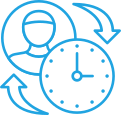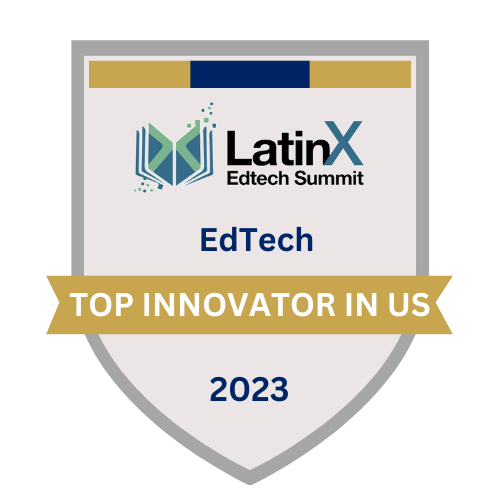Online PD: Processing Information: Foundation to Learning
Online PD
Processing Information: Foundation to Learning
About
Now more than ever, it is a challenge to grab students’ attention spans. During their school day, students rely heavily on the three-processing skills, attention, processing speed, and working memory. In fact, a weakness in one or more processing skills can impact a student's executive function. Yet, the majority of educators have not received formal training and as a result, misunderstand processing and how it occurs. In this program, you'll learn how to successfully capture your student's attention, adequately address processing speed, and unlock the gateway to learning, working memory. Finish the course with a toolbox of strategies that can be applied to your teaching on Monday.
Note: COGx is able to provide credits that qualify for the education departments in most states and are accepted by most districts. You may wish to check whether your state’s Department of Education requires a special approved provider status.
Program at a glance
- Subject: Science of Learning
- Level: Introductory
- Language: English, Spanish
- Language: English, Spanish
- Prerequisites: Bachelor's Degree
What you will learn:
The 3 core cognitive skills essential for processing information and supporting executive function. The 4 types of attention and strategies to capture your students' attention. Common root-causes of inattention. The characteristics and limitations of working memory, the bridge to learning. How to arrange the content you are teaching to enhance working memory and reduce cognitive overload. Strategies students can use to optimize working memory. The science of effective multimedia learning and methods to improve teaching. The critical role processing speed plays in learning. Common symptoms of slow/fast processing speed on learning. Teaching methods and modifications that support the variety of processing. speeds that exist in your classroom The relationship between processing speed and emotional wellbeing. Classroom strategies to optimize how your students’ process information.
How you will learn:
7 Video micro-lessons from experts 6 Group Discussion Invitation 7 Visuals and Graphic Organizers 2 Classroom Application Guides Ongoing self-checks and application of concepts Direct access to your Program Leader Opportunities to give and receive feedback from your peers Teaching practice reflection & Complimentary Workshop
Translating & Applying The Science of Learning:
We practice what we teach: Our programs incorporate the scientific principles of human learning into our instructional design. Learning is active, engaging, collaborative, and application-based. Invigorate your lesson planning with science-based tools that will enable your students to master what you teach.
Who you learn from
Global experts on human learning provide the scientific base of our content, while program facilitators and subject matter experts translate the science and guide application to your classroom.
What Educators Are Saying
Research-Informed Instructional Design
Priming Activities
Priming quizzes and open-ended interrogatories are used to get learners to think about the subject matter they are about to learn.
Video Micro-Lessons
Video lessons are delivered by 12+ expert educators, and leading researchers experienced in the translation of research on the science of learning into classroom application.
Classroom Application Guides
Takeaway posters are provided throughout the modules to guide the effective implementation of the concepts covered.
Retrieval Practice
To foster durable, flexible, and enduring learning, we apply retrieval strategies throughout the program, including elaboration, spacing, self-testing, and interleaving.
Peer-Based Feedback & Reflection
Learners receive and provide peers with anonymized feedback on lesson plan application assignments for deeper learning.
Alumni Practitioner’s Platform
Program alumni (Science of Learning Practitioners) can join an online platform to share resources and strategies for ongoing application of concepts and guidance.
COGx Program Leaders
Program Leaders are assigned to support your learning journey. They monitor the Program and respond to your questions. You can also contact your Program Leader for on-demand support.
Application Hour
Under the guidance of the Program Leader, educators apply academic research to their specific student population and subject matter during live, virtual training sessions.
Discussion Boards
Modules include Discussion Forums to share ideas, collaborate, and provide and receive valuable peer feedback. Program Leaders are also constantly available seek clarity or ask a question on any topic throughout the learning journey.
Other Science of Learning Programs

Introduction to the Science of Teaching
Get an overview of the Science of Learning including evidence-based teaching practices and strategies. Hone your teaching practice by learning proven techniques and ensure students leave your classroom prepared for the ever-changing job landscape.
7 hours

Processing Information: Foundation to Learning
Learn how to capture your students’ attention, address processing speed, and unlock the gateway to learning - working memory. Gain a toolbox of strategies that can be applied to your teaching.
9 hours

Support Executive Function
Skills
Why are some students impulsive and procrastinate, while others have difficulty planning and organizing? Crack the code of Executive Function and unlock your students’ full potential.
7 hours

Teach for Mastery
Why is most of what we learn forgotten? Why do students overestimate how well they know what you teach them? Gain a toolbox of strategies that will ensure your students remember what you teach them and can apply it to real-life.
10 hours

Metacognition & Feedback
Did you know that one of the most effective ways to improve academic performance is by strengthening metacognition? Learn the “ins and outs” of metacognition, metacognitive strategies to embed alongside instruction, and ways to provide effective feedback.
10 hours

Teach for Belonging & Wellbeing
On average, 1 out of 2 children suffer from trauma globally while student engagement decreases with every year of schooling. What does this mean for teaching and learning? Discover evidence-based methods to increase student engagement and foster student wellbeing.
8 hours

Address Cognitive Diversity
How do you effectively engage and teach your twice exceptional students? How about those with language processing disorders? Learn how your student’s cognitive profiles affect their learning in your classroom and what strategies and systems you can put into place to effectively teach your diverse learners.







